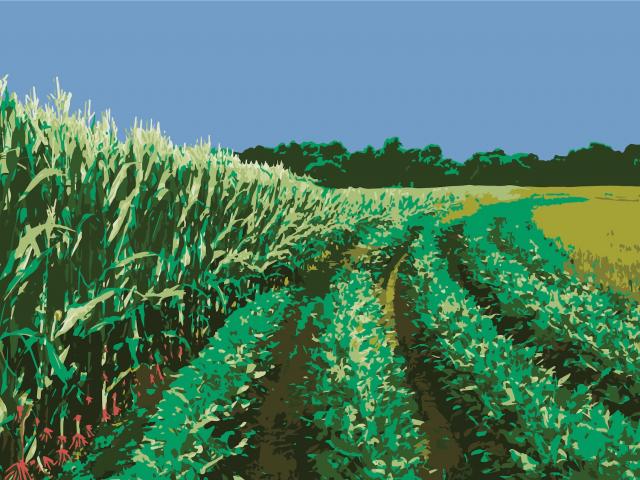
Time
Mar 4, 2020–Mar 27, 2020
Location
Banvard Gallery
Knowlton Hall
275 West Woodruff Avenue
Columbus, Ohio, OH 43210
United States
Agriculture is the most pervasive anthropogenic land use in the world, covering 40% of the Earth’s ice-free land and accounting for 70% of global freshwater use. Agricultural expansion and intensification have had a profound impact on ecosystems and biodiversity across the world. Though the scale of conventional agriculture may seem daunting, the form and functioning of the global agricultural landscape operate on a much smaller scale: that of the field. The standardization of agricultural field systems, both within and across productive regions, affords opportunities for monumental change. If the ecology of one productive field can be altered, thousands of others may follow in turn.
This exhibit explores the design potential latent in the highly standardized and commodified spaces of contemporary agricultural production by turning to an equally standardized and commodified artform: paint-by-numbers. The exhibit features 5 pre-planned, numbered canvases and a set of pre-mixed numbered paints. Each composition highlights a different strategy for incorporating ecological principles in conventional agricultural landscapes and practices. These “agro-ecological” approaches include contemporary applications of indigenous knowledge, managed livestock grazing, dynamic hydrologies, continuous living cover, and precision technologies. Visitors are invited to grab a paintbrush and help bring these strategies to life.

About the Team
The exhibit is curated by Forbes Lipschitz and designed by The Working Landscapes Lab, exploring ways for design to reframe and reshape conventional agricultural landscapes. Student researchers include Colin Martinez Watkins and Rachel Smith. The exhibit is made possible by generous support from the Knowlton School and the Initiative for Food and AgriCultural Transformation.

